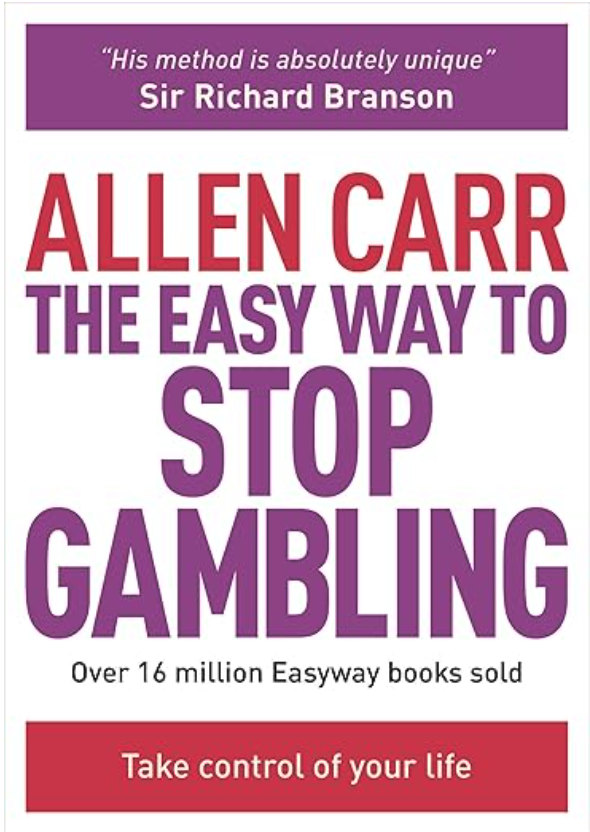Relapse Isn’t the End: Your Guide to Gambling Relapse Support and Recovery
Relapse can feel like the collapse of all your progress. But it isn’t a failure—it’s information. It highlights the areas in your recovery that need more attention, not less. Whether you placed a bet, reinstalled gambling apps, or found yourself chasing losses again, this is not the end of your journey—it’s a turning point.
This article provides practical tools and emotional guidance for anyone navigating a relapse. Because how you respond to a setback is more important than the setback itself.
What Is Relapse—And What Isn’t It?
Relapse is a return to gambling behavior after a period of control, abstinence, or progress in recovery. It can take many forms—from reinstalling gambling apps, placing a single bet, or even slipping back into compulsive thinking about gambling. Sometimes it’s a quick moment of impulse. Other times, it may be days or weeks of hiding behavior again before acknowledging what’s happening.
Relapse is not always dramatic. It can be quiet. It can be filled with denial, rationalization, or secrecy. For many, it begins emotionally before it ever becomes a behavior—an internal pull toward old habits, triggered by stress, grief, isolation, or unresolved emotions.
Relapse may involve:
- Reinstalling gambling platforms or apps
- Visiting casinos or online betting sites
- Gambling again after a long period of abstinence
- Lying about gambling or hiding financial behavior
- Justifying “just one bet” that quickly escalates
But here’s what relapse is not:
- A sign you’re starting over from zero
- Evidence that your recovery was meaningless
- Proof that you’re broken, weak, or hopeless
- A reason to drown in shame or self-punishment
Relapse doesn’t mean you’ve failed. It means something within your recovery system needs attention, reinforcement, or healing. Think of it as a feedback loop—a moment of reflection that can show you where vulnerabilities remain, and where support must grow.
“Relapse is data—not doom. It tells us what systems broke and what needs support.” — High Stakes Healing Journal Prompt
What’s important is how you respond. A relapse does not erase your progress; it challenges you to deepen it. It invites you to slow down, re-engage your support system, and revise your gambling disorder treatment plan with more self-awareness and strength.
Many people experience relapse along the path to lasting recovery. What sets healing in motion again is not perfection—it’s persistence. You can take what you’ve learned, strengthen your tools, and continue forward, following A Structured Approach to Gambling Recovery.
Step-by-Step Gambling Relapse Support Guide
A quick note: certain links on this page are affiliate links. If you buy through them, we may receive a small commission. This helps us keep High Stakes Healing running and continue offering free recovery resources. We only share tools and books we trust to help you heal.
1. Pause the Spiral
First, stop the shame cycle. You don’t need punishment—you need clarity. Ask yourself:
- What triggered the urge?
- What emotions were present?
- What was I avoiding or soothing?
Write these down. Use them to adjust your gambling disorder treatment plan moving forward. Recognizing gambling triggers in recovery and building resilience is essential for breaking the cycle. By identifying patterns—whether stress, loneliness, or financial pressure—you gain the insight needed to respond differently next time. Each moment of awareness strengthens your ability to pause, reset, and choose healing over relapse.
2. Tell Someone
Healing becomes easier with guidance. Online-Therapy.com offers structured CBT-based programs and personal therapist support designed to help you break free from harmful patterns.
Isolation fuels addiction. Reach out to someone you trust—a therapist, support group, or friend. Try saying:
“I slipped, and I want to understand why so I can get back on track.”
3. Reflect and Repair
Use CBT-based prompts, journaling, or virtual gambling addiction support tools like:
Digital Recovery Tools
Explore our Books for Gambling Recovery in Kindle and Audiobook versions — discreet, portable, and always accessible when you need them most.
- Explore our Books in Digital Form
- Wysa (emotional regulation app)
4. Adjust Your Plan
A relapse shows where your structure needs reinforcement. Revisit your recovery routines:
- Are you tracking urges?
- Do you need stronger boundaries?
- Is your schedule supporting your healing?
How consistent routines support lasting gambling addiction healing is by creating stability in moments of uncertainty. When daily practices are predictable—whether it’s journaling, attending meetings, or setting aside time for self-care—they act as anchors that reduce the risk of relapse. Consistency builds confidence, showing you that recovery is not about perfection but about steady progress over time.
Featured Book Review
 The Easy Way to Stop Gambling by Allen Carr
The Easy Way to Stop Gambling by Allen Carr
Allen Carr’s method focuses on dismantling the beliefs and mental traps that keep people gambling. Rather than relying on willpower, this book explores the psychological hooks of addiction and shows readers how to remove the desire to gamble itself. Clear, direct, and empowering, it offers a mindset shift that can support immediate and lasting recovery.
5. Practice Self-Compassion
This is critical. Without compassion, relapse becomes a spiral. With it, relapse becomes fuel for healing. Say to yourself:
“This is part of the process. I can fall and still move forward.”
Mindful self-compassion as a relapse prevention strategy means treating setbacks not as failures, but as opportunities to learn and grow. By pausing, acknowledging your struggle without judgment, and offering yourself kindness, you create the emotional resilience needed to continue recovery. This mindset transforms relapse into a reminder that healing is a journey, not a straight line.
Gambling Relapse Support Stories from the Recovery Community
“Relapse reminded me I was still using gambling to avoid grief. Once I named that, recovery deepened.” — Anonymous Reader
“I stopped counting days and started counting decisions. That changed everything.” — High Stakes Healing Subscriber
Explore our real stories section for more inspiring stories.
Next Steps in the Recovery Roadmap
- Solo retreat for gambling recovery and the power of reflection
- The hidden health toll of gambling addiction
- Finding strength to rebuild and recover
- Conversations on Gambling Addiction
- Music for Gambling Recovery
Download: Relapse Recovery Toolkit
Includes:
- Urge Tracking Worksheet
- Self-Compassion Scripts
- 3-Day Reset Ritual
Gambling Relapse Support: Join our healing circle
Join our newsletter for weekly support, affirmations, and new tools: Subscribe here
FAQs About Gambling Relapse Support
What should I do immediately after a relapse?
Pause. Reflect on what triggered the behavior. Reach out to someone you trust. Don’t spiral—reconnect with your plan and supports.
Does a relapse mean I have failed?
No. A relapse does not erase your progress. It’s a signal that something needs more support. Compassionate reflection is key.
Should I tell my therapist or support group?
Yes. Relapse thrives in secrecy. Sharing your experience creates accountability, reduces shame, and reconnects you to support systems.
How can I rebuild trust after relapse?
Rebuilding trust takes time and consistent action. Be hones





